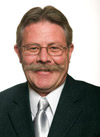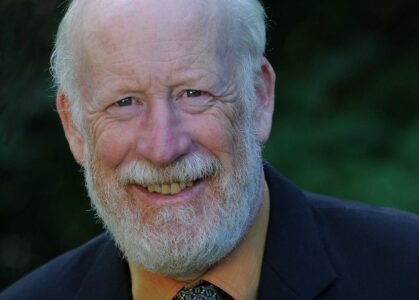Controversial Planning for the Future document slammed, methodology faulted
The most recent version of SD20’s Planning For the Future document, which calls for the closing of Rossland Secondary among others has caused quite a stir.
The report has had holes poked in it from various groups and has been rejected by both the City of Rossland and the City of Castlegar. Castlegar City councillor Deb Macintosh has even gone so far as to call for an independent review of the report’s methodology, claiming bias.
Earlier this fall, shortly after the release of the document, the City of Trail accepted options one through four in the report and called for swift action to implement the findings of the report in time for the next school year.
However, the sticking points of the report lies with concerns about the way data, criteria and weighting of the criteria was used.
At the November 22nd regular Rossland city council meeting, Jennifer Ellis spoke on behalf of the Neighbourhoods of Learning Committee, highlighting some of that group’s concerns. The request from the NOL group was to consider their technical analysis of the document prior to the November 24th meeting between the School Board and area councilors and mayors.
“As a group, the Neighbourhoods of Learning Committee, working with Doug MacKay, have identified what we feel are technical concerns with the report that we want you to be aware of in advance of any discussion you may have with the school district and to help guide any questions you may want to ask them,” opined Ellis.
The NOL Committee’s analysis identified “eight major types of technical concerns in the Planning For the Future report.”
“The first is that we feel there are some key criteria that were not considered and the development of the criteria weighting was an unorthodox process. We contend that there are too many criteria. The scoring metrics for many of the criteria are not independent. The metrics used for the criteria in some cases did not adequately measure the criteria. The conversion from the points or costs into scores, the common unit issue exaggerates the differences between the options disproportionately. There are some data issues also, but generally we feel the data used in the report was pretty good.”
Some of the key criteria the committee felt were not factored into the report include the value of educating high school students in their own communities, educational outcomes as opposed to educations opportunities and the impact of the closure of RSS to Rossland as well as the potential impact of the closure of other schools on other communities.
The City of Castlegar along with the City of Rossland presented a united front at the November 24th meeting as Mayor Granstrom read aloud a joint letter from himself and Mayor Chernoff of Castlegar:
The City of Castlegar, and the City of Rossland Strongly reject this report.
The City of Rossland and the City of Castlegar state very strongly that proceeding with public consultation based on this Report would become extremely divisive and a detrimental exercise not only for the citizens we represent,, most importantly a detriment to the education of our children.
The Board has allowed a process to go forward without adequate focus on educational criteria.
Furthermore, without provincial government direction, and given the political climate, there is no directive on which the board must act.
The City of Castlegar and the City of Rossland are unanimous in their opposition to Proceeding on the basis of this Report.
Respectfully,
Lawrence Chernoff Mayor City of Castlegar
Greg Granstrom Mayor City of Rossland
Granstrom’s hope is that the school board will decide to spend more time looking for positive solutions as opposed to reasons why schools should be closed.
“When I stood up and read that note, certainly there was silence afterward. Once they got their feet back on the ground, they asked some questions. It’s my feeling and my colleague Mayor Chernoff ‘s that to proceed based on that document is a mistake as there are serious statistical problems with it. We need something that provides solutions to the community and certainly this document felt like it wasn’t focused around the educational requirements of the children.”
“It’s easy to say why we should close schools. Why not come up with some documents that look into how we can maintain our schools and make them better and increase the educational needs of the kids,” added Granstrom.
Castlegar councilor Deb Macintosh was particularly incensed at the meeting, getting into what was described as an epic debate with Trail Councillor Robert Cacchioni. Macintosh was particularly vocal in calling out what she perceived as biases by Trail area trustees and is requesting an independent review of the document by an outside party without specific interests for one community or another.
School Board chair and former Rossland Mayor Gord Smith was not able to comment on the proceedings of the meeting noting, “I can’t really comment on the meeting because it was a closed meeting. The proceedings of that should remain confidential. From a procedural point of view I shouldn’t be talking about the content of that meeting.”
Smith did note, however, that this document is by no means a final report and that people shouldn’t see it as a death sentence for RSS or other schools in the region. Rather, Smith pointed out, the document is the culmination thus far of the planning process that has been undertaken and is designed to foster further discussion and get people engaged.
“No decisions have been made,” added Smith. “The report that has been released is a collection of the planning exercise that we’ve undertaken over the last year. We collected the feedback from the first phase of Planning For The Future based on those scenarios and then again weighted different scenarios based on the criteria set by district staff, principals and vice principals. We’re now back into a dialogue with our communities to gauge how they feel about these scenarios and what impact they have on education and their communities. There is lots of work to do yet. There is lots of time for people to understand how the analysis has been undertaken to date and to get involved in the process if they choose to.”
One of the school board’s guiding value statements, as noted by Smith, has been to maintain a “fluid and transparent process.” To that extent all feedback received will continue to be posted to the SD20 website .
The board has stated that they welcome any and all feedback or suggestions.
The November 24th meeting was only one in a string of scheduled meetings designed to gather additional input from the public.
“We are accepting any written response or critiques or alternatives and that’s the case we expressed to our partners in the municipalities last Thursday,” said Smith. “We were looking for their feedback at that meeting but also to represent their schools as well. The next steps will be opening the forum once again to the public.’
The next scheduled public meetings will be held:
- Tuesday, January 11, 2011 – 7:00 pm – JL Crowe Secondary School gymnasium
- Tuesday, January 18, 2011 – 7:00 pm – Rossland Secondary School gymnasium
- Tuesday, January 25, 2011 – 7:00 pm – Stanley Humphries Secondary School gymnasium
Focus group meetings will be held as follows:
- Tuesday, February 15, 2011 – 7:00 pm – JL Crowe Secondary School gymnasium
- Tuesday, February 22, 2011 – 7:00 pm – JL Crowe Secondary School gymnasium
- Tuesday, March 1, 2011 – 7:00 pm – JL Crowe Secondary School gymnasium


























